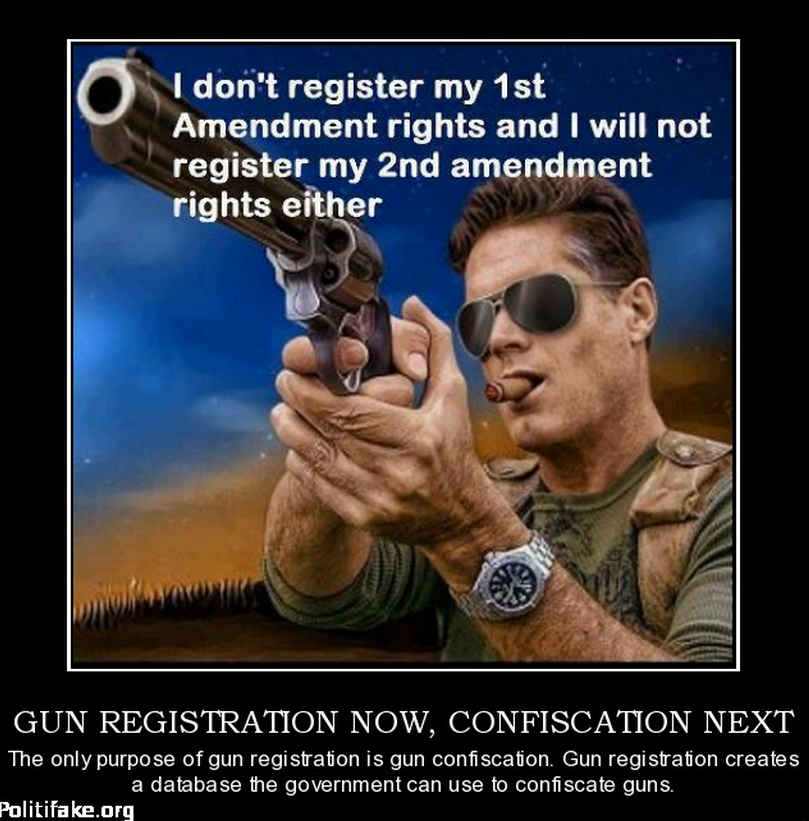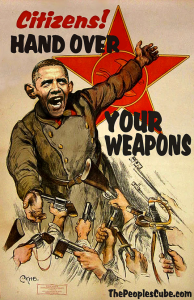Imagine you turned on the news today to learn that Group A of politicians is accusing Group B of politicians of plotting to confiscate all automotive vehicles. As evidence, Group A is noting that Group B supports requiring users of vehicles to be licensed, registered, and of sound mind and body, and opposes the use of armored tanks or monster trucks on community roadways.
In that news story, imagine that political Group A is insisting that no vehicle regulations be used. After all, they claim, any regulation would be equivalent to, or would surely lead to, confiscation of all vehicles.
We would think Group A was delusional, even though we all adore cars and are vehemently opposed to them being confiscated. But that, my friends, is the world in which we are living, when it comes to gun control.

Almost every debate about responsible gun control regulation is dodged by gun advocates. Instead of debating proposed gun regulations on the merits, gun advocates instead claim that the mere mention of a gun regulations constitutes ipso facto evidence that guns are about to be confiscated. That ridiculous assertion has been trotted out there for decades, despite the fact that gun confiscation has never even been proposed by a mainstream politician, much less come close to being enacted.
 If you really think President Obama, who has been President for seven years now and only has one year left in his term, is a gun confiscator, wouldn’t you think he would have confiscated by now? Don’t you think he would have done it in the first two years of his presidency, when his party controlled the House, Senate and White House?
If you really think President Obama, who has been President for seven years now and only has one year left in his term, is a gun confiscator, wouldn’t you think he would have confiscated by now? Don’t you think he would have done it in the first two years of his presidency, when his party controlled the House, Senate and White House?
Obviously, no one is going to confiscate guns, because there is no political support in America for confiscating guns. It hasn’t happened, and it’s just not going to happen.
We need to put those confiscation delusions to rest before America can have a reasonable debate about how to responsibly regulate guns.
A Familiar Regulatory Framework
How should America regulate guns? My approach is simple: Let’s regulate guns similarly to how we regulate cars and trucks. Both motor vehicles and guns are hunks of steel that pose relatively little public danger when used responsibly, but are extraordinarily dangerous when used irresponsibly. For that reason, society keeps motor vehicles legal, but we regulate them to reduce the risk of harm.
Therefore, we should regulate guns just as we regulate motor vehicles:
- Users should be licensed.
- Users should have to pass a basic safety related test in order to get a license.
- Users who are not physically or mentally equipped to safely operate the equipment should not be licensed to do so.
- There should be rules for safe use of the equipment.
- Users who don’t use the equipment responsibly should lose their license.
- Each piece of equipment should be registered.
- Equipment registration data and user licensure data should be readily available to law enforcement officials to help them enforce laws.
- The equipment should be able to be used in many parts of the community, but not in all parts of the community.
- The equipment should be required to have locking devices to help the user secure it from theft and use by minors and other unlicensed citizens.
- The equipment should be required to have reasonable safety features.
- The equipment makers should be held liable for failure to produce safe equipment, just as every other manufacturer is.
- Equipment that is unnecessarily dangerous to the community shouldn’t be legal.
That’s what American society does with cars and trucks, with relatively few complaints or abuses, and that’s what we should do with guns.
Would applying the motor vehicle regulatory model to guns stop every accidental shooting, murder, mass murder and suicide? Of course not. Just as regulated motor vehicles still are dangerous, regulated guns would still be plenty dangerous. But just as motor vehicle regulations limit the harm caused by cars and trucks in society, gun regulations would limit the harm caused by guns in society. It would make a difference. It would make things less bad.
So let’s have an honest debate about that familiar and successful regulatory model. And for once, let’s have the debate without getting side-tracked by ridiculous delusions of confiscation.
